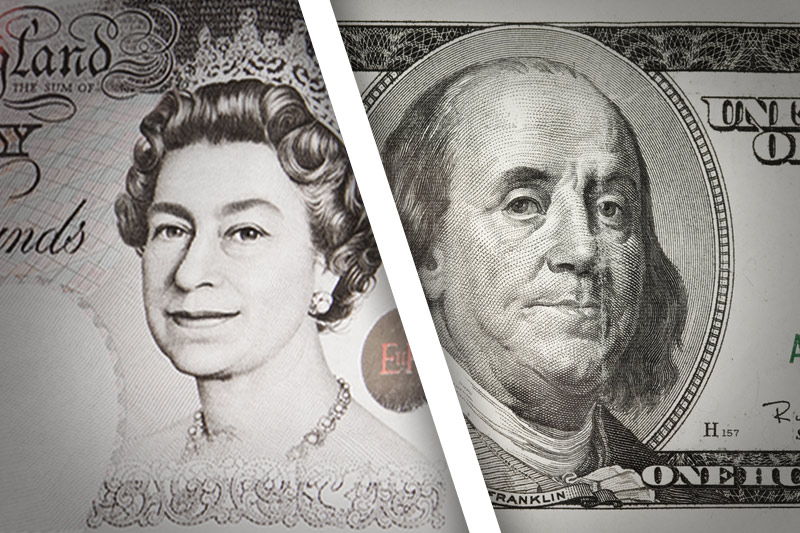Investing.com -- GBP/USD rose sharply on Tuesday bouncing from 31-year lows, as foreign exchange traders capitalized on a relief rally in the Pound days after the stunning Brexit results triggered the largest one-day crash in the British currency on record.
The currency pair stood at 1.3327 at the close of U.S. afternoon trading, up 0.0108 or 0.82%. At session-highs, the Pound hit 1.3418 against the Dollar, considerably above Monday's intraday low of 1.3118, its lowest level since September, 1985. Despite Tuesday's rebound, the Pound has still tumbled more than 10% against its American counterpart since polls closed last Thursday night in the historic U.K. referendum. When the final results were tallied, U.K. voters decided to approve a measure to leave the European Union by a 52-48% margin.
Addressing a crowd of prominent leaders at a dinner speech at the two-day EU Summit in Brussels, U.K. prime minister David Cameron emphasized that both parties moving forward would like to see a "clear model" for interactions between the U.K. and the remaining members of the European bloc. Cameron reiterated comments made before Parliament a day earlier that he would not invoke Article 50 of the Lisbon Treaty, an action he will leave to his successor. On Monday, Cameron announced that he will step down from his position by September 2 in the wake of last week's surprising decision by U.K. voters.
If the U.K. decides to invoke Article 50 it will initiate a two-year process for formal negotiations of Britain's departure from the 28-nation bloc. With last week's decisive victory, the U.K. became the first nation in more than six decades to approve a measure for opting out of the EU. In Cameron's final appearance in Brussels in his current role, the U.K. prime minister emphasized that the EU must offer more concessions to Britain in terms of immigration reform in order to consummate a deal.
Earlier, Cameron's counterparts maintained a hard line stance against Britain ahead of the summit. While addressing the Bundestag, Germany chancellor Angela Merkel rejected a proposal from former London mayor Boris Johnson which would enable Britain to receive access to the European single market while simultaneously enacting a measure that would severely restrict immigration into the U.K. In an interview with CNN, Italy prime minister Matteo Renzi echoed the sentiments.
The Pound hit session-lows on Tuesday after credit ratings agency Moody's lowered its outlook on a dozen British banks, amid widespread trade and credit concerns. Eight banks, including Barclays PLC (NYSE:BCS), HSBC Holdings (LON:HSBA) PLC (NYSE:HSBC) and Santander U.K (MC:SAN) were downgraded from stable to negative, while Lloyd's and Principality Building Society were lowered from positive to stable.
"We expect lower economic growth and heightened uncertainty over the U.K.'s future trade relationship with the EU to lead to reduced demand for credit, higher credit losses and more volatile wholesale funding conditions for U.K. financial institutions," Moody's said in a statement. "This will be negative for banks' credit fundamentals, as reflected in today's rating actions. Simultaneously, we have changed the outlook on the U.K. banking system to negative from stable."
Yields on the U.S. 10-Year touched a fresh four-year low at 1.428%, before rebounding to 1.465% (up three basis points). Yields on the UK 10-Year gained three basis points to 0.96%, remaining near all-time record lows.
The U.S. Dollar Index, which measures the strength of the greenback versus a basket of six other major currencies, fell more than 0.40% to an intraday low of 95.93, before rallying to 96.19 at the close of U.S. markets. A day earlier, the index hit a three-month high at 96.86.
